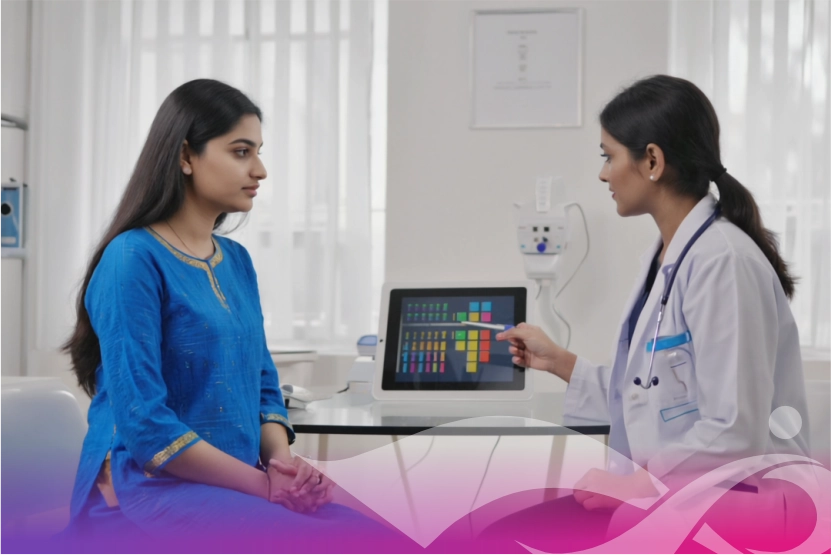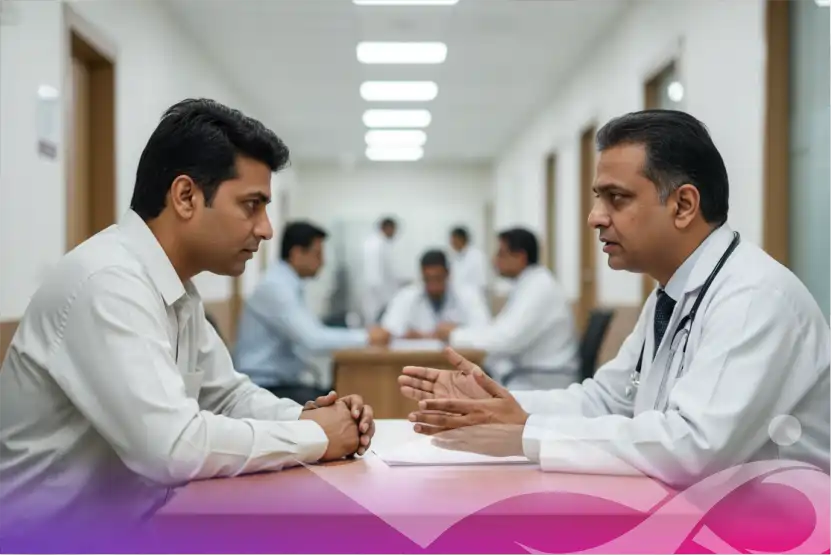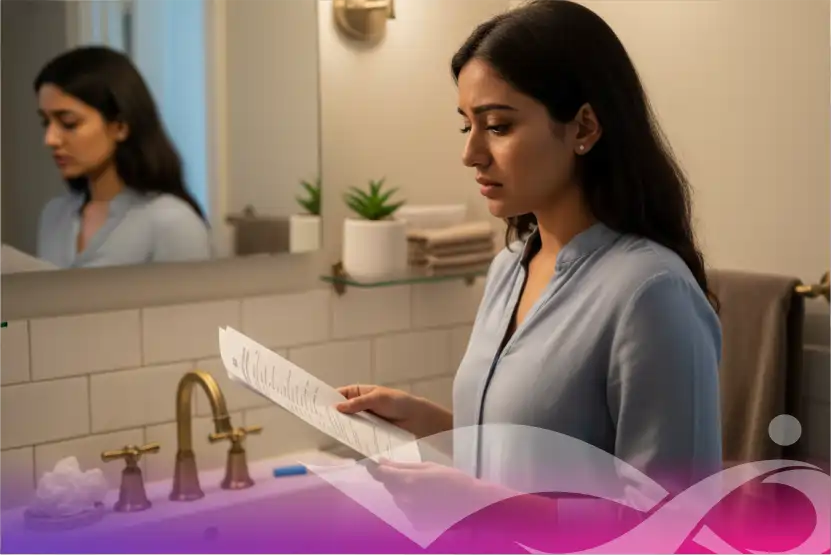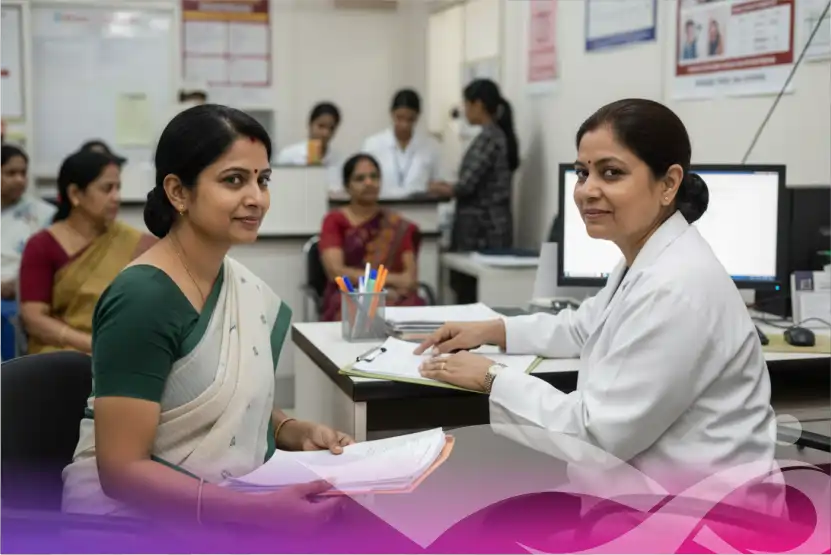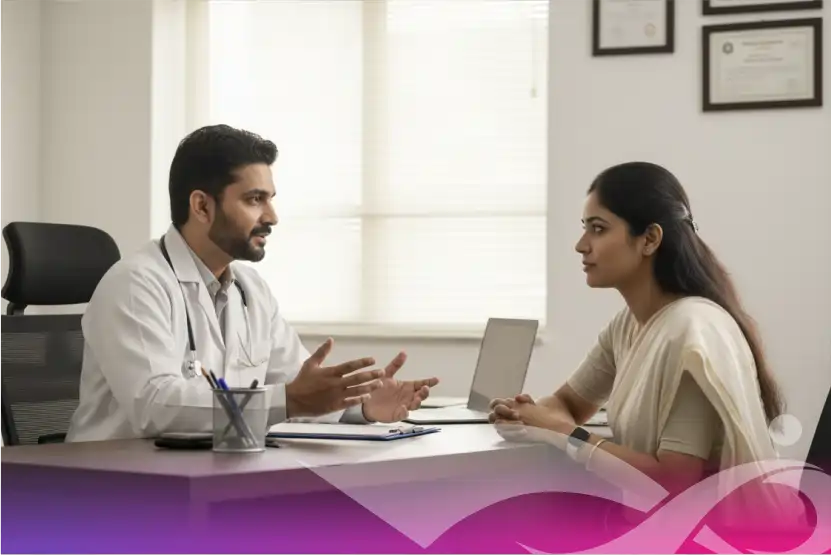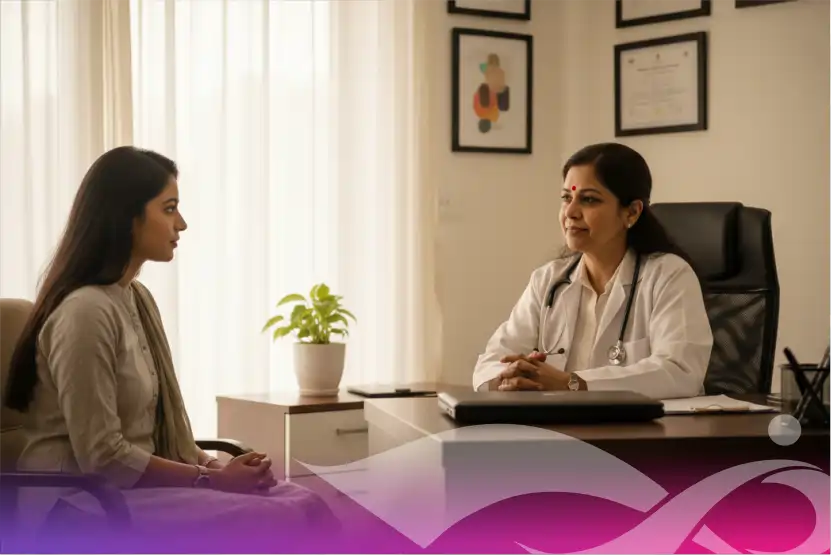Although a cancer diagnosis is devastating at any age, for young patients it also carries extra weight related to possible effects on future fertility. Losing the ability to raise children could be as disruptive as the disease itself. Understanding What is cancer and its types is crucial for young patients and their families when facing such a diagnosis, particularly as they consider long-term implications. At IOCI, we fully inform and assist young cancer patients by including fertility preservation talks as a crucial part of our whole treatment plan, so addressing these very sensitive concerns.
Interplay of Fertility and Cancer Treatment
Many effective cancer treatments, although saving lives, sadly damage reproductive organs or the cells producing eggs and sperm. Either transient or long-term damage from this can lead to infertility. Prominent treatments affecting fertility include:
Chemotherapy: Some chemotherapy drugs, especially alkylating agents, can be toxic to eggs in ovaries and sperm-producing cells in testicles, causing early ovarian failure in women and azoospermia (absence of sperm) in men.
Radiation to the abdomen or pelvic region can directly destroy testes or ovaries. Additionally, influencing hormone generation required for fertility is radiation to the brain.
Directly affecting fertility is surgical removal of reproductive organs (e.g., oophorectomy, hysterectomy, orchiectomy).
For hormone-sensitive cancers—such as some breast or prostate cancers—hormone therapy can reduce hormone production, causing temporary infertility that might or might not be reversible following treatment.
The degree of risk depends on the patient's age, the specific kind and dosage of treatment, and the starting reproductive status. Young patients have to have honest and open talks with their oncology team on these risks before treatment begins. This is particularly relevant when considering the diverse causes of cancer in young adults.
Preservation of Fertility: A Hope Ray
The good news is that advances in reproductive medicine present several sensible choices for preservation of fertility. Talking about these alternatives before beginning cancer treatment can help one feel in control and forward looking.
Regarding ladies:
- Egg Freezing, sometimes known as Oocyte Cryopreservation, is the process of retrieving eggs from the ovaries either unfertilised (as eggs) or fertilised (to produce embryos) then freezing for eventual use. For women, this is the most often used and practical technique.
- Eggs are obtained, fertilised with sperm from a donor or partner, and the resultant embryos are frozen in a process known as embryo freezing—also known as embryo cryopreservation. Usually women with a partner choose this option.
- One tiny piece of ovarian tissue is taken out and frozen. For extremely young patients (pre-pubescent) or those unable to postpone cancer treatment for egg or embryo freezing, this is an alternative. Later on, the tissue can be transplanted back, maybe restoring fertility.
Men:
- Sperm Banking—also known as Sperm Cryopreservation—collects and freezes sperm samples. This is a quite basic and quite successful approach. It can be done fast, usually before treatment starts.
- Testicular Tissue Freezing: Mostly for pre-pubescent boys who cannot yet produce sperm, this is an experimental alternative. Frozen testicular tissue is intended for future sperm production or extraction.
- Making wise decisions at IOCI
For all young cancer patients, at IOCI we include fertility counselling into the first phase of treatment. Comprising oncologists, fertility experts, and patient counsellors, our team will:
- Calculate Risk: Describe the particular fertility problems related to the suggested cancer treatment.
- Talk about options: Describe every fertility preservation technique that is now in use, together with their cost, success rates, and timescales.
- Enable referrals: Link patients for timely preservation treatments with specialised reproductive endocrinologists.
- Offer emotional assistance. Honour the emotional toll these choices take and provide counselling tools.
Understanding how cancer diagnosis and treatment impacts fertility is a critical aspect of holistic care. We empower our young patients to make informed choices that consider not just their immediate health, but also their long-term well-being and future family aspirations. It's about providing hope and practical solutions for the path ahead.
Consult us at any of our locations—across IOCI Noida, Greater Noida, Mumbai, Indore, Aurangabad, Agartala, Saharanpur, Kanpur and Jodhpur.






